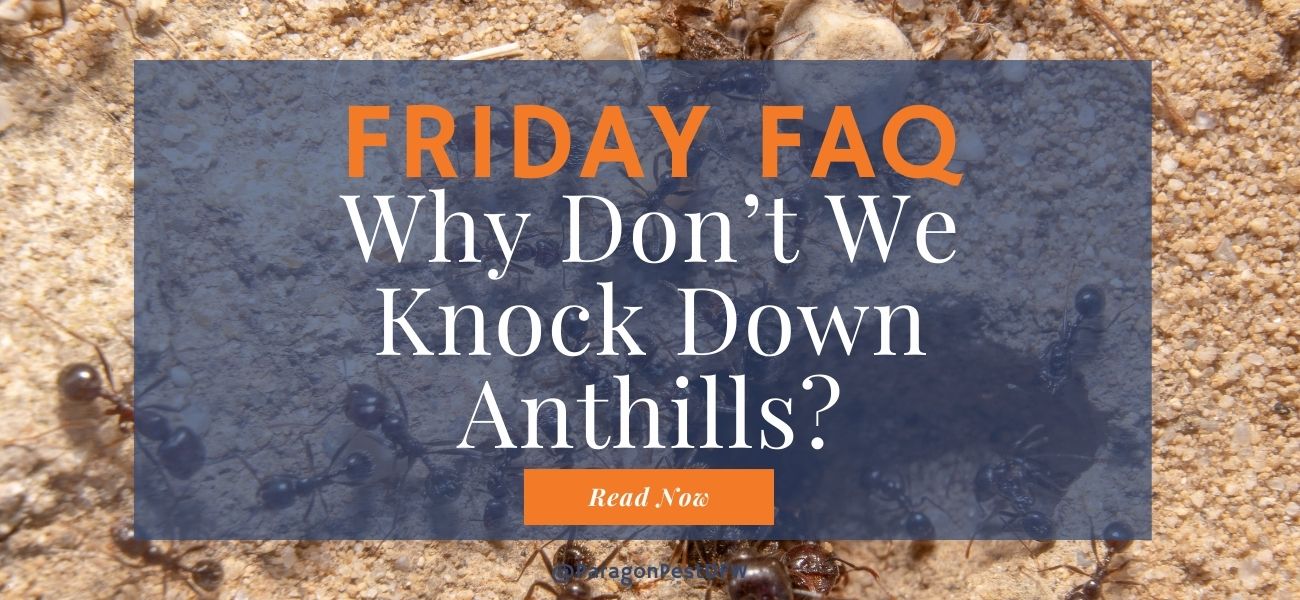Friday FAQ: Why Don’t We Knock Down Anthills When We Treat?
At Paragon Pest Control, we often get asked why we don’t knock down anthills during our treatments. It might seem counterintuitive, but there's a good reason for this approach. Understanding the behavior of ants and the concept of satelliting is key to effective pest control.
Understanding Anthill Behavior
Ants are social insects that live in structured colonies. Their anthills are more than just mounds of dirt; they are complex systems with tunnels and chambers that house their entire colony. When threatened, ants have a remarkable ability to respond quickly to protect their queen and colony members.
The Problem with Knocking Down Anthills
When an anthill is disturbed, ants perceive it as a threat to their colony. If we were to knock down an anthill while it’s active, the ants would scatter and create multiple new colonies in the surrounding area. This phenomenon is known as satelliting. Essentially, disturbing the anthill causes the ants to spread out and establish satellite colonies, making the problem worse instead of better.
Effective Ant Control Strategy
To effectively control ant populations, our approach focuses on:
Targeted Treatments: We apply specialized treatments around and inside the anthill to target the ants directly without causing them to scatter.
Baiting Systems: By using baits, we can attract worker ants to carry the toxic bait back to the colony, ensuring the queen and the entire colony are affected.
Ongoing Monitoring: Regular follow-up visits help ensure that the ant population is effectively controlled and doesn’t return.
Why Our Method Works
By avoiding the immediate destruction of anthills, we can implement treatments that address the root of the problem. This strategic approach ensures that the entire colony is eradicated, preventing the ants from relocating and creating new colonies.
Contact Us for Expert Pest Control
If you’re dealing with ants or other pests, trust Paragon Pest Control to provide effective and comprehensive solutions. Visit our website at paragonpestdfw.com to learn more or to schedule a consultation.


